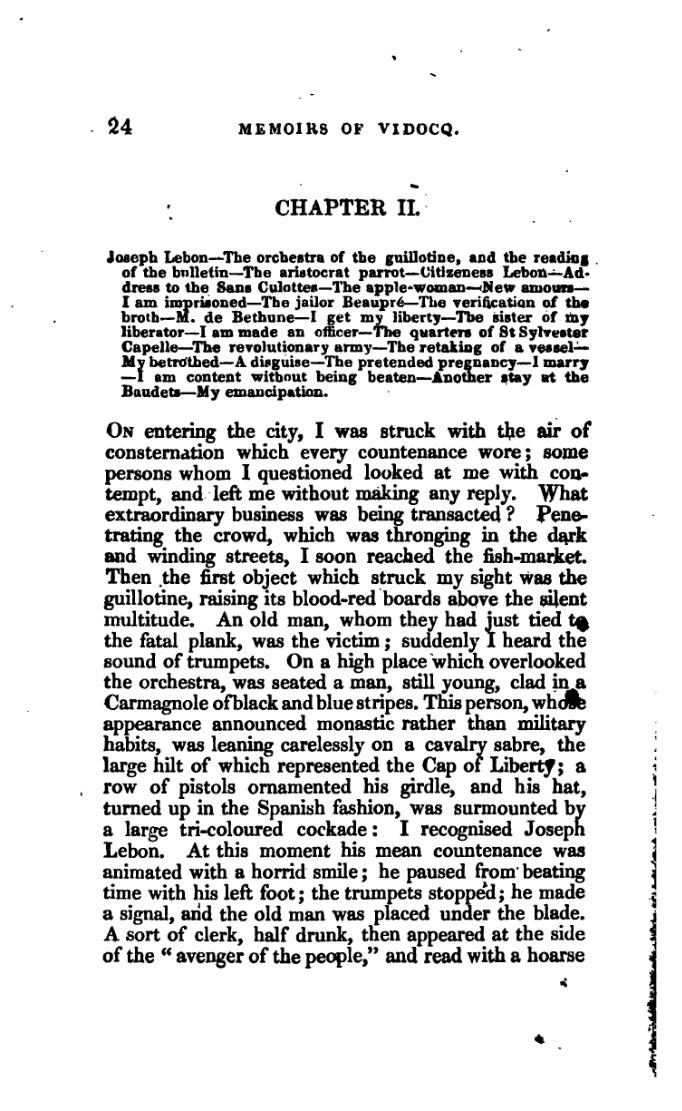On entering the city, I was struck with the air of consternation which every countenance wore; some persons whom I questioned looked at me with contempt, and left me without making any reply. What extraordinary business was being transacted? Penetrating the crowd, which was thronging in the dark and winding streets, I soon reached the fish-market. Then the first object which struck my sight was the guillotine, raising its blood-red boards above the silent multitude. An old man, whom they had just tied to the fatal plank, was the victim; suddenly I heard the sound of trumpets. On a high place which overlooked the orchestra, was seated a man, still young, clad in a Carmagnole of black and blue stripes. This person, whose appearance announced monastic rather than military habits, was leaning carelessly on a cavalry sabre, the large hilt of which represented the Cap of Liberty; a row of pistols ornamented his girdle, and his hat, turned up in the Spanish fashion, was surmounted by a large tri-coloured cockade: I recognised Joseph Lebon. At this moment his mean countenance was animated with a horrid smile; he paused from beating time with his left foot; the trumpets stopped; he made a signal, and the old man was placed under the blade. A sort of clerk, half drunk, then appeared at the side of the "avenger of the people," and read with a hoarse
